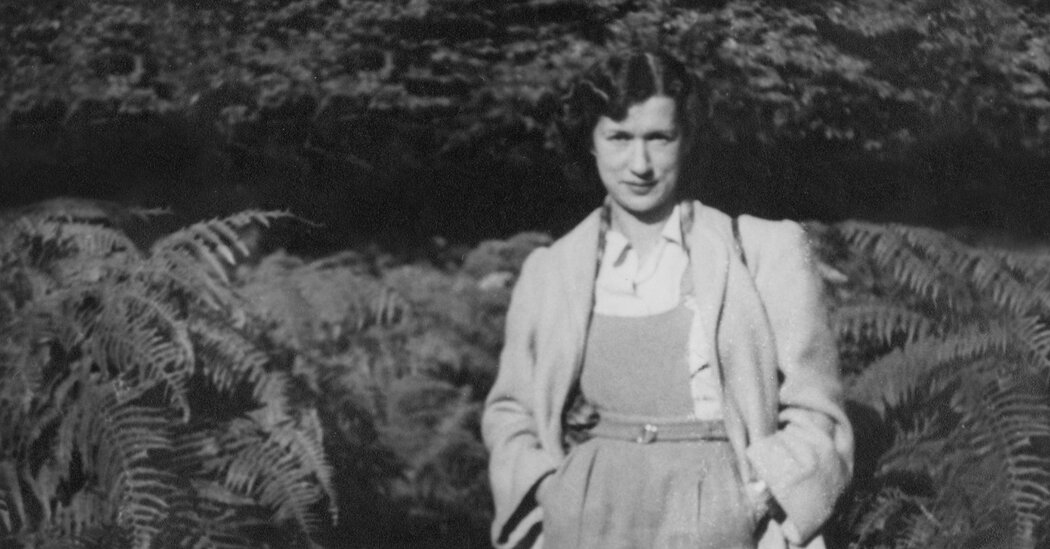Selma van de Perre, a valiant Jewish secretary who during World War II covertly transported suitcases bulging with cash, seditious newsletters, identity cards and ration books to Dutch resistance agents, even penetrating Nazi headquarters in Paris, died on Oct. 20 in London. She was 103.
Her death was confirmed by the Dutch Embassy in London.
Ms. van de Perre was 19 when the Nazis invaded the Netherlands in May 1942. In only four days, they subjugated a nation of fewer than nine million people, from which they deported more Jews — both in absolute numbers and as a percentage of the total Jewish population — than from any other Western European country.
Ms. van de Perre avoided deportation — to work camps or worse — first by feigning illness, then by masquerading as a nurse, and finally by being recruited by a Jewish furrier in Amsterdam to make gloves for the German Army. She joined the Dutch resistance, adopted aliases and dyed her hair blond to help her pass as a non-Jew.
“I, fortunately, was strong — physically and mentally,” she wrote in a memoir, “My Name Is Selma,” published in both English and Dutch in 2020 and later in other languages.
“I didn’t know exactly what I was capable of,” she wrote, “but I felt resilient enough — perhaps because my childhood had been something of a roller-coaster ride — to do more than just hide myself away.”
When the memoir was published, Caroline Moorehead wrote of Ms. van de Perre in The Times Literary Supplement of London that “it is impossible not to marvel at her steadiness and courage.”
Operating under the pseudonyms Wilhelmena Buter and Margareta van der Kuit, she forged documents, helped Jewish families find shelter in Christian homes, and delivered secret papers — including once to a contact at Nazi headquarters in Paris, which she infiltrated by flirting with the German soldiers who were guarding the front door.
But in June 1944, German police officers discovered her in an apartment in Utrecht. She was first interned at the Herzogenbusch concentration camp (known to the Dutch as Vught) in the Netherlands, where she helped sabotage the gas masks that inmates were forced to make for German troops.
She was then transferred to Ravensbrück, north of Berlin, the largest camp for women in Germany. There she endured beatings, life-threatening disease and starvation, and was made to work in a nearby factory making airplane components.
She was rescued by the Swedish Red Cross in April 1945, but she was nearly killed when the trucks carrying her and other prisoners to freedom were mistaken for an enemy convoy and strafed by Royal Air Force fighters.
After she finally made it to Sweden, and then to England — where she joined her two older brothers, who had served in the British armed forces during the war — she learned that her father, mother, sister, grandmother, aunt, uncle and two cousins had all been murdered by the Nazis.
Selma Velleman was born on June 7, 1922, in Amsterdam, the third child of Barend Levi Velleman — who defied his parents’ hope that he would become a rabbi and had an up-and-down career as an actor and singer under the name Ben Velmon — and Femmetje (Spier) Velleman, a milliner.
Her older brothers celebrated their bar mitzvahs, but the family was not observant. When Selma was 7, she spent eight months in a sanitarium recuperating from pleurisy and pneumonia, but she returned to school, got good grades and aspired to work at a prestigious department store as either a secretary or a bookkeeper. At the time of the Nazi invasion, she was working for a paper company.
But on June 7, 1942, weeks after the invasion, she was told she would be drafted into a labor camp in Eastern Europe. Her father was deported. Her mother and younger sister went into hiding; soon after that, she joined the resistance.
The Nazis never discovered that she was Jewish; when she was captured, she was classified as a political prisoner.
After she was liberated and reunited with her brothers in England, she taught sociology and mathematics at a high school in London; studied anthropology at the London School of Economics; and joined the Dutch-language radio service of the British Broadcasting Corporation, where she met a Flemish journalist, Hugo van de Perre.
They married in 1955 and had a son, Jocelin. After her husband died, in 1979, Ms. van de Perre worked as a cultural correspondent for several media outlets and became a British citizen. (Information about her survivors was not immediately available.)
In 1983, Ms. van de Perre was awarded the Resistance Memorial Cross by the Dutch government. Since 1995, she had returned every year to Ravensbrück as part of a program to remind students of what happened there.
In 2021, the PBS news anchor Christiane Amanpour asked Ms. van de Perre whether she was bitter about the war.
“Bitter?” she replied. “That’s a difficult word. No, I’m not bitter, but I don’t forgive the people who did those things, the Nazis. They were horrible people and deserved to be killed when they were killed. But I’m not bitter against the Germans. I wouldn’t be intolerant like that.”
On Sept. 5, 1944, as she was preparing to be transferred from Vught, 200 male inmates were massacred by their Nazi guards. Nonetheless, the next day, after boarding the train to Ravensbrück, she managed to maintain her equanimity.
In her memoir, she wrote that she scrawled a note on toilet paper to a girlfriend and slipped it through the slats of the cattle car in which she was crammed, hoping that someone would find it and pass it on.
In 1995, as that girlfriend was moving into a new house, she found the note. It had apparently been found near the tracks by a railroad worker and forwarded to her, but she had forgotten about it for 50 years.
“Keep your spirits up,” the note said. “I’ll do the same, although I do wish the end was in sight.”
Despite her grievous losses, Ms. van de Perre expressed awe in her memoir at how many people became heroes during the war.
“I can still hardly believe that people who should have remained unremarkable ended up memorialized on lists and monuments,” she wrote. “We were ordinary people plunged into extraordinary circumstances.”
Sam Roberts is an obituaries reporter for The Times, writing mini-biographies about the lives of remarkable people.
The post Selma van de Perre, Dutch Jew Who Resisted Nazis, Dies at 103 appeared first on New York Times.




